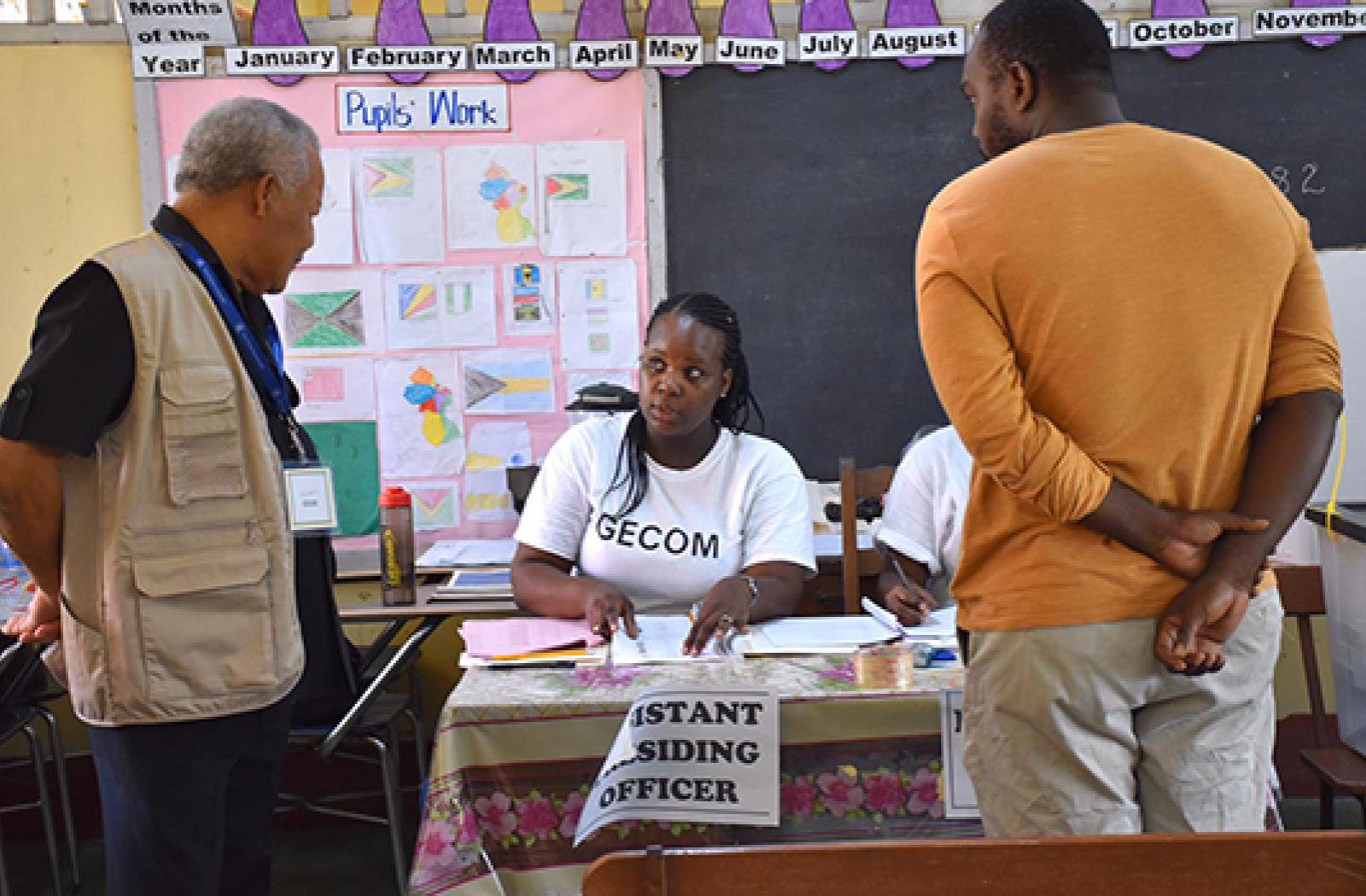Close

GEORGETOWN – Guyana’s National Assembly has unanimously passed amendments to the Representation of the People Act (ROPA) to fortify the country’s electoral system, a move widely seen as a safeguard against a repeat of the tumultuous 2020 election saga. The amendment, though technical in nature, closes a key loophole in election administration that came to light during the protracted 2020 vote count. Attorney General Anil Nandlall, SC, who tabled the changes, said they “address an oversight” in the law by explicitly providing for deputy supernumerary returning officers in the largest electoral districts guyana standard. In layman’s terms, this ensures backup officials are in place to help manage the count in Regions 3, 4, and 6 – areas where the absence of clearly defined deputies previously caused confusion and was exploited by rogue elements.
During the 2020 general elections, Guyana endured a five-month impasse as allegations of fraud and the sudden illness of a key returning officer in Region 4 threw the process into disarray. Subsequent inquiries revealed that lack of clarity in the chain of command contributed to the chaos. “Never again,” was the message from government speakers as Parliament debated the ROPA amendment on Monday. Nandlall reminded colleagues that a comprehensive set of electoral reforms had been promised and partially enacted in 2022, overhauling everything from voter registration rules to the tabulation process. However, in the final stages of drafting those reforms, a definition was inadvertently left incomplete – specifically, naming who can deputize a supernumerary returning officer (an official who oversees sub-district counts in large regions). The new amendment rectifies that by formally defining “supernumerary deputy returning officers” and adding them to the law’s framework.
Debate on the floor was brief and notably collegial. Opposition MPs raised no objection to the substance of the amendment – a reflection of cross-party desire to strengthen election credibility. Shadow Minister of Legal Affairs Roysdale Forde acknowledged that the chaos of 2020 “must never be repeated”, and supported measures that improve transparency. Government MP Sonia Parag, also Minister of Regional Development, spoke passionately about the importance of robust laws but noted, pointedly, that “the trauma of 2020 was not due to legislation but due to individuals who tried to twist the system”. This was a thinly veiled reference to election officers aligned with the then-government who were later accused of attempting to manipulate results. Parag lauded the wide consultations held on electoral reform, emphasizing that stakeholders from all sides – civil society, political parties, international experts – contributed to the 2022 reforms. The consensus to pass this additional fix, she said, “shows we all learned from the ordeal.”
After the amendment sailed through its final reading, Speaker Manzoor Nadir commended the House for coming together on a national interest issue. Outside Parliament, observers also welcomed the move. The Guyana Elections Commission (GECOM) in a statement said the clarified law will improve efficiency in results management. “Having formally designated deputies means counts can continue seamlessly if a RO (returning officer) is unable to perform,” a GECOM commissioner explained, adding that new training manuals will incorporate the changes ahead of the next elections. The private sector and diplomatic community – both vocal during the 2020 impasse – also expressed approval. One Western ambassador noted that timely electoral reforms were among recommendations from international election observers: “It’s encouraging to see Guyana act on lessons learned.”
Notably, the ROPA tweak is part of a broader effort by the PPP/C government to strengthen democratic processes. Parallel amendments to the National Registration Act are being finalized to tighten voter list management. And just last month, President Irfaan Ali appointed new GECOM commissioners to fill vacancies, including one from the opposition’s list, maintaining the balanced composition mandated by law. While political tempers often flare in Georgetown, on this occasion all sides concurred on the importance of credible elections. As Guyana prepares for the 2025 polls, the legal scaffolding is now sturdier. Of course, as Minister Parag reminded, laws alone cannot guarantee integrity – that requires ethical conduct. Still, with this parliamentarian fix, any would-be disruptors of the future will find far fewer cracks in the system to exploit.

The Guyana Project is an independent media platform delivering fact-checked, ground-level reporting on politics, economy, and public life in Guyana. With a focus on transparency and development, we bring unfiltered news and thoughtful analysis to help shape a more informed, forward-looking nation.


Lorem Ipsum is simply dummy text of the printing and typesetting industry. Lorem Ipsum has been the industry’s standard dummy text ever since the 1500s, when an unknown printer took a galley of type and scrambled it to make a type specimen book. It has survived not only five centuries, but also the leap into electronic typesetting, remaining essentially unchanged. It was popularised in the 1960s with the release of Letraset sheets containing Lorem Ipsum passages, and more recently with desktop publishing software like Aldus PageMaker including versions of Lorem Ipsum.
t is a long established fact that a reader will be distracted by the readable content of a page when looking at its layout. The point of using Lorem Ipsum is that it has a more-or-less normal distribution of letters, as opposed to using ‘Content here, content here’, making it look like readable English. Many desktop publishing packages and web page editors now use Lorem Ipsum as their default model text, and a search for ‘lorem ipsum’ will uncover many web sites still in their infancy. Various versions have evolved over the years, sometimes by accident, sometimes on purpose (injected humour and the like).
Contrary to popular belief, Lorem Ipsum is not simply random text. It has roots in a piece of classical Latin literature from 45 BC, making it over 2000 years old. Richard McClintock, a Latin professor at Hampden-Sydney College in Virginia, looked up one of the more obscure Latin words, consectetur, from a Lorem Ipsum passage, and going through the cites of the word in classical literature, discovered the undoubtable source. Lorem Ipsum comes from sections 1.10.32 and 1.10.33 of “de Finibus Bonorum et Malorum” (The Extremes of Good and Evil) by Cicero, written in 45 BC. This book is a treatise on the theory of ethics, very popular during the Renaissance. The first line of Lorem Ipsum, “Lorem ipsum dolor sit amet..”, comes from a line in section 1.10.32.